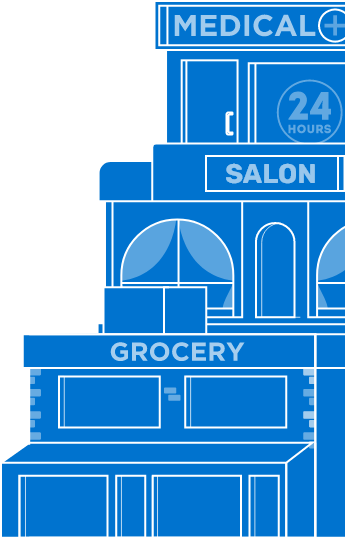Published On Mar 15, 2015
in Areas of Expertise
Our sustainability mission as a retail landlord is two-fold: be a good steward of the environment, and do it in a way that makes business sense and adds value to our shopper center portfolio.
The imperative is clear. Investors are paying closer attention to building performance data and business practices, and are expecting increased operational efficiencies and NOI. Tenants are facing growing pressure from consumers, shareholders, and competitors to improve their corporate responsibility programs and demonstrate results.
Our “Green Dream Team,” established by Mike Phillips and lead by Eric Richter, has continued to lead Phillips Edison’s sustainability initiatives to meet evolving investor and retailer demands over the past several years. Efforts have ranged from simple to complex—high-efficiency HVAC units to photovoltaic systems mounted on rooftops.
This year, we’re finding that you can’t underestimate the power of simplicity in driving retail sustainability. Several of our simpler efforts have been creating significant impact as we scale them throughout our portfolio. Here’s an overview of those projects and some of their results.
Recycling. Recycling has had the largest impact on the overall sustainability of our portfolio. It requires a low capital expense, can be implemented at every center, and generates results immediately. Ninety-one (and counting) of our 270 shopping centers recycle. On average, about 40 percent of waste and construction material—about 1,412 yards—is diverted from landfills. We’re aiming to increase the percentage of waste and construction material to 80 percent over the next few years.
LED lighting retrofits. Our goal is to upgrade parking lot lamps, wall packs, and pylon signage with LED bulbs at 10-12 centers annually. We’ve completed approximately 30 retrofits to date, with another 12 finished in 2015. One of our biggest projects was at the Village at Glynn Place in Brunswick, Ga.
Water conservation systems. We’re working to tightly control and eliminate irrigation where we can, especially in states such as California and Georgia that are under water conversation directives. We’ve installed irrigation control systems at 25 Phillips Edison centers. In other cases we’re implementing xeriscaping—removing non-native plants and adding native species that require no or very little water, such as cacti and yucca, in addition to rock gardens.
Promoting alternative transportation. We’re installing bike racks at all of our centers to encourage alternative transportation and drive foot traffic among shoppers who prefer biking over driving. We have bike racks at 50 percent of our centers and aim to add them to our remaining centers over the next three years. We’re also adding charging stations for electric-powered golf carts and vehicles. Our goal is to have free EV charging stations installed at 100 centers within the next two years.
There’s a lot more to share about these programs and initiatives percolating on the horizon. We’re planning to dive more deeply into these efforts and results in future blog posts. Keep your eyes peeled for details on how we’re aiming to help improve the ICSC’s Property Efficiency Scorecard, our thoughts around greywater systems, and case studies of sustainability projects at Phillips Edison centers. More to come.
Learn more about Phillips Edison & Company, here: http://www.phillipsedison.com/About-Us/
Bob Myers





